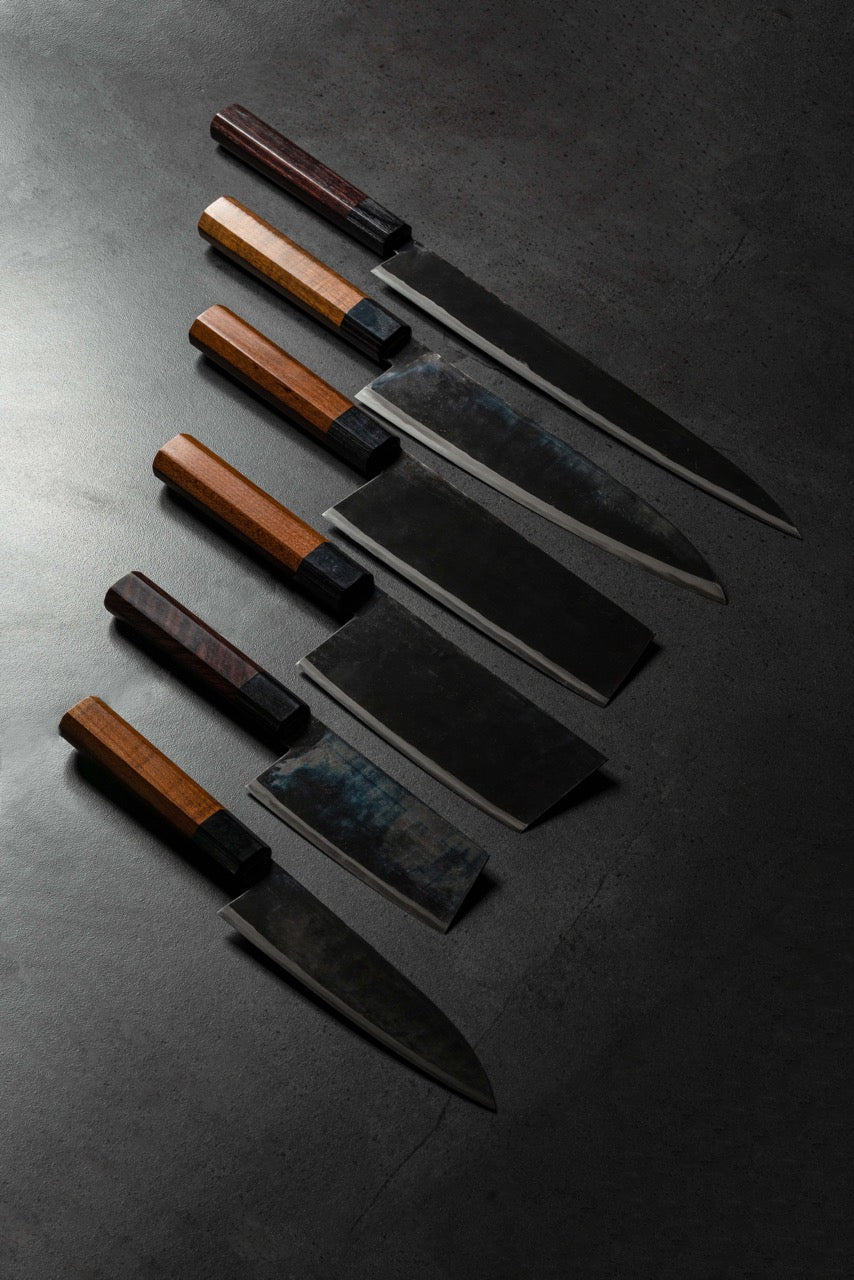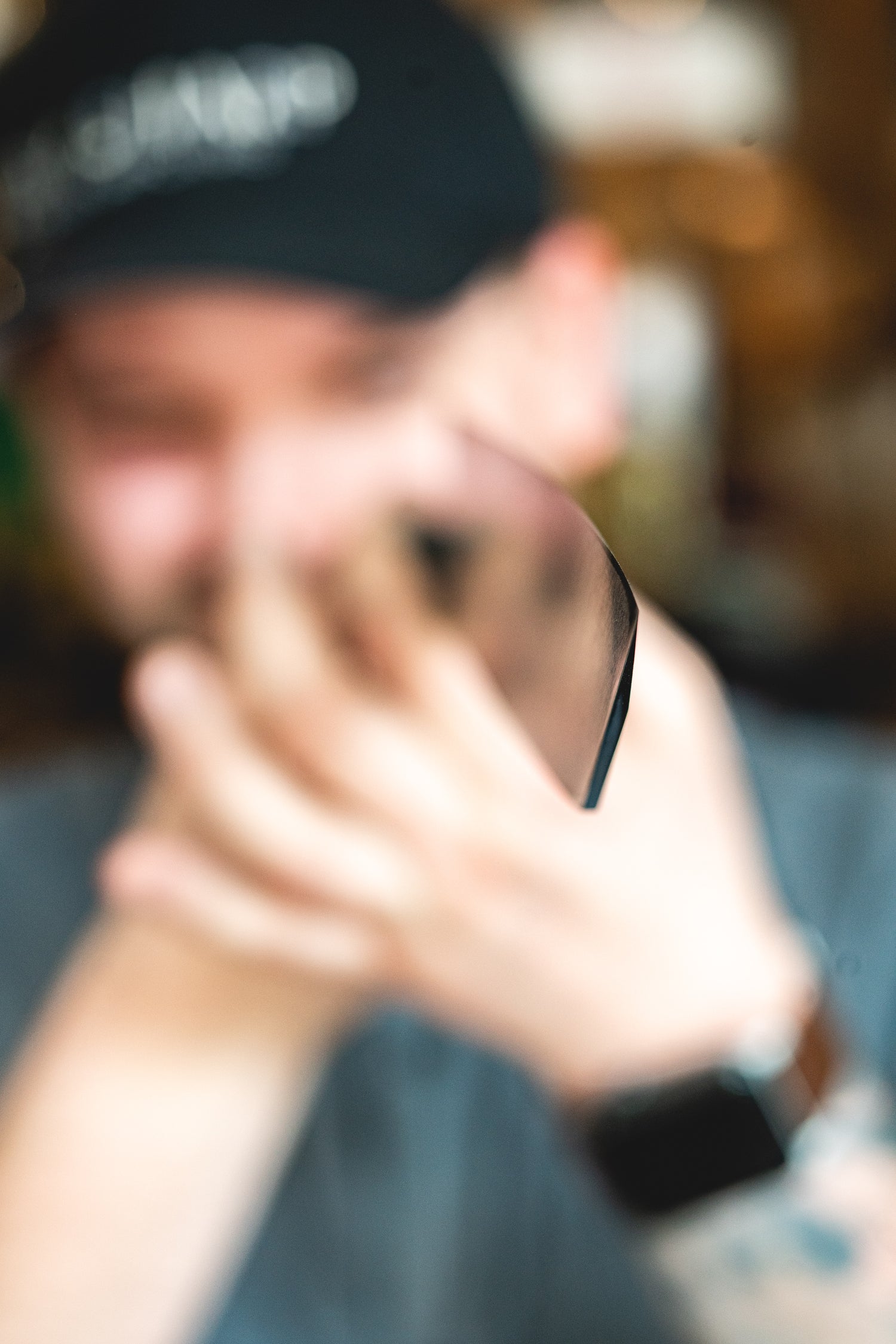
Hitohira T10 Tsuchime Santoku 170mm Bois de Pakka
Stay Sharp business offer
10 knives = 20% off
25 knives = 25% off
50 knives = 30% off
The discount is automatically added to your cart
Note: Please note that it may take some time to receive your knives, depending on the quantity and model requested at the time you place your order. For further details, please contact us at info@staysharpmtl.com
Description
The word santoku translates as "three virtues", which refers to the cutting of meat, fish and vegetables or the following three types of cutting: chopping, slicing and dicing. Very versatile, the santoku is one of the types of knives we recommend as the first or main knife in the kitchen.
VG-10 is a stainless steel produced by Takefu Special Steel in the early 1960s and is still in use more than 60 years later. This steel was specially designed for knife making and is used by many master blacksmiths in Japan. Despite the 15% chromium in the composition which gives it a high corrosion resistance, VG-10 can reach an HRC of 60-61. This is due to the addition of 1.5% Cobalt which gives the steel a higher hardness with a high temperature quenching treatment.
Takamura's V-10 Special is VG-10 heat treated to 61 HRC
Maintenance tips
Have it sharpened on a water stone by a professional every year. Store in a dry place. Wash immediately after use and dry completely before storing. Do not let soak. Not dishwasher safe.
Guarantee
Guarantee
Each knife is guaranteed for life for obvious issues related to the manufacturing of the product. For example, if the handle becomes loose or cracks after a few weeks of adequate use. Or if the blade has a crack from the edge to the column of the blade. These problems are rare, but can occur. In which case you will be offered an exchange for the same product or a refund. As each case is different, it is at our discretion to assess whether our lifetime warranty for obvious manufacturing issues applies.
After sales service
Is your knife not cutting as well as you expected? Each knife comes with what is called its "original sharpening". We have more than 200 different products in stock and often, several copies of each. All our products are handcrafted in Japan before being sent and the "original sharpness" may vary. If you think your knife isn't cutting to its full potential, don't hesitate to contact us and we'll fix it for you by sharpening the knife for free!
Oops, has there been an accident with your blade?
Has your knife fallen to the ground, been damaged in a wrong move or was used to cut a product that was too hard? We take care of it, we support you and your knife, offering you an in-store sharpening and repair service !
Do not hesitate to contact us or stop by the store to get an estimate in just a few minutes!







